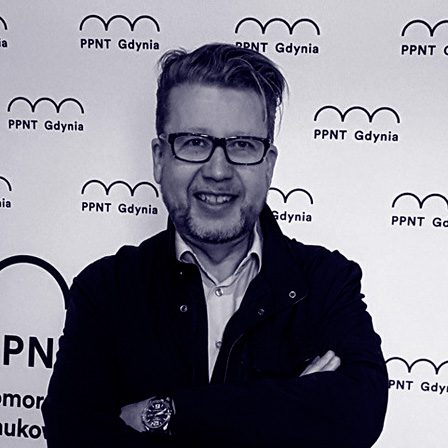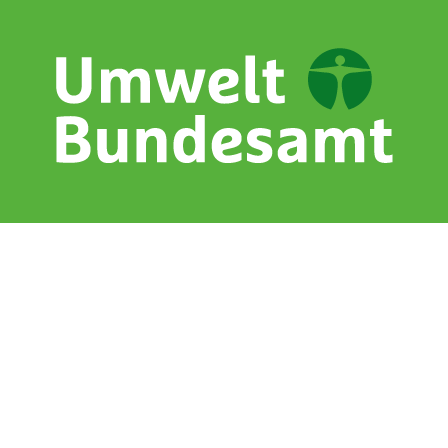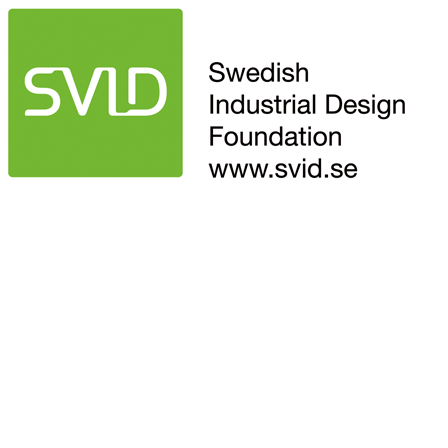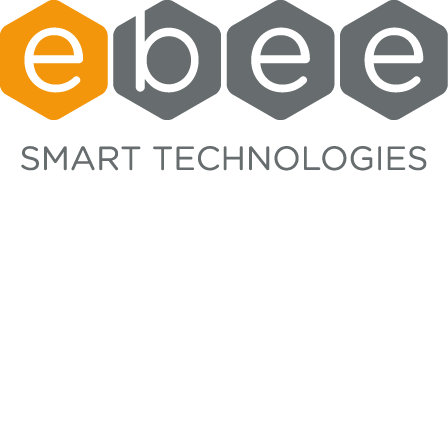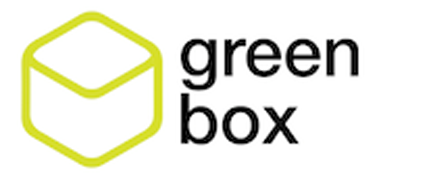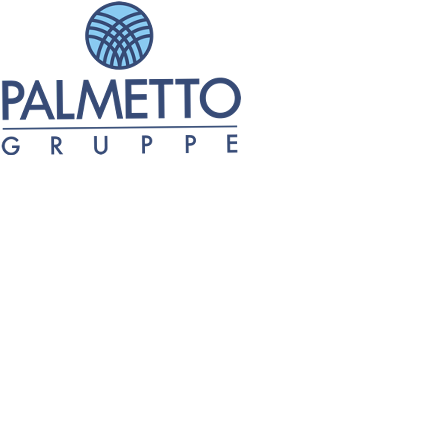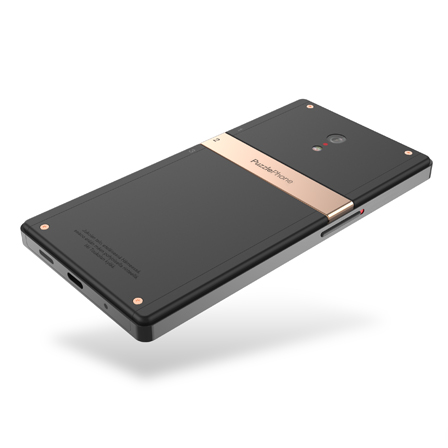»EcoDesign Circle« was supported by the Interreg Baltic Sea Region Programme 2014 - 2020.
More information about the project: ecodesigncircle.eu
In addition to the well-established project partners Federal Environment Agency, Estonian Design Centre, Design Forum Finland, Swedish Industrial Design Foundation and Gdynia Design Centre, two new partners have joined the project in 2019: Technical University Berlin and Medina Art Ltd. from St. Petersburg.

EcoDesign Sprint 4.0
You are an entrepreneur of an SME and want to react on decreasing ressources? You want to promote the topic of circular economy in your company? Do you want to open up new business areas or replace a product with a service or develop and improve an existing digital service? You want to make the transition from linear to circular business models and do not know exactly how to do it? Are you willing to try out new methods in an interdisciplinary team? If you can answer one of these qustions with a "YES", you are ready for our EcoDesign Sprint.
Which methods and processes can be used to find sustainable solutions? And how can actors from design, business and education learn from each other? We have been working on these questions for over three years as part of the EU project »EcoDesign Circle«. The most important findings are now freely accessible on the knowledge platform »Sustainability Guide«. The guide provides information in English about ecodesign, circular economy and names sustainability experts from the Baltic Sea region.
As part of the Sustainability Guide, the video series »EcoDesign in Practice« presents forward-looking products and ideas. In short interviews, designers and entrepreneurs give insights into their work.
Good Cases
We have also collected inspiring cases for you with background information, interviews and talks, and illustrative pictures. They are not always well-known but have particularly impressed us. These cases are representative of what is happening right now in various corners (or bays) of the Baltic Sea region, and in some cases even beyond. But they are also possible elsewhere. Take the inspiration, discuss, live the spirit of these models, and add your own ones! You can find them here.
Project extension
Services and digital platforms play a central role in the development of circular business models today. Therefore seven partners from the Baltic Sea region and the IDZ worked on the adaptation, further development and promotion of various tools and workshop formats developed in the previous project, such as the EcoDesign Sprint. These are aimed equally at designers and environmental experts who want to deepen their environmental or design expertise. Lead Partner is the Federal Environment Agency in Dessau, Germany.
The project is an extension of the 3-year EcoDesign Circle project and is partly financed by the INTERREG Baltic Sea Region Programme of the European Union.
Ecodesign Toolkit
Did you participate in a pilot or Train-the-Trainer workshop? Browse the various materials, charts and canvases here: »Ecodesign Toolkit«
Ecodesign moves product design towards the circular economy and reduces pressure on the environment. In cooperation with five partners from the Baltic Sea Region, IDZ participated in the EU project »EcoDesign Circle«. The project aimed to increase the capacity of design centers, SMEs and lecturers in the field of Ecodesign. Within three years, Germany, Estonia, Finland, Lithuania, Poland and Sweden hosted exhibitions and workshops, offered consulting and education programs, and created competence networks. Lead partner of the project was the German Environment Agency.
As part of the OSCEdays Berlin 2018, IDZ hosted the »Circular Design Forum« on June 14 at EUREF-Campus. More than 200 visitors came to the conference to gain insights into sustainable design approaches, future-orientated business models, and political frameworks. Among the speakers were Dr. Leyla Acaroglu, Dr. Arndt Pechstein and Anne Raudaskoski. The exhibition »Reconsider Design« was presented alongside.
Opening
9:00 AM – 09:30 AM
Venue: Werkstatt
Welcome by:
- Prof. Karsten Henze, International Design Center Berlin (Chairman of the Board)
- Dr. Bettina Rechenberg, German Environment Agency (Head of the department »Sustainable Production and Products, Waste Management«)
- Christian Rickerts, Permanent Secretary at the Berlin Senate, Department for Economics, Energy and Public Enterprises
»Materials and Processes«
Keynote and Panel Discussion
10:00 AM – 11:20 AM
Venue: Werkstatt
Biomimicry: What Nature Can Teach us About Circularity, Value and Innovation
by Dr. Arndt Pechstein, phi360 / Hasso-Plattner-Institute Berlin
With entire industries witnessing disruptive changes and anthropogenic changes happening world-wide, a new mindset and the implementation of new approaches are imperative. Sustainable, systemic solutions gain increasing importance and it seems natural that the design of our products should draw inspiration from the biological world. Consequently, Biomimicry, the discipline that abstracts biological design principles to human problem solving, has experienced significant growth over the past years. Dr. Arndt Pechstein, Biomimicry specialist and expert in human-centered innovation is pioneering this innovation method in Germany and will introduce into novel approaches of problem-solving and bio-inspiration. By forging a positive instead of an adversarial relationship between technology, business, and the environment, Biomimicry promises to be a societal and economic game changer.
As multi-award winning entrepreneur, agile coach, and specialist in Neuroscience, Biomimicry (bio-inspired innovation), Design Thinking (user-centered innovation) and Digital Business Models, Berlin-based Dr. Arndt Pechstein advises organizations in adaptive leadership, resilient and learning networks, disruptive innovation, and digital transformation. Arndt is founder of the innovation firm phi360.eu and founder & director of the German Biomimicry think-tank. He serves as advisor for automotive, banking, pharmaceutical, energy, manufacturing, e-commerce, and education.
Panel Discussion with:
- Dr. Arndt Pechstein, phi360 innovation / Hasso-Plattner-Institute Berlin
- Bastian Schäfer, Airbus Operations GmbH
- Erik van Buuren, Fundamental School
Moderated by Stephan Bohle, futurestrategy. strategies for sustainability
»Mindsets«
Keynote and Panel Discussion
11:40 AM – 1:00 PM
Venue: Werkstatt
Changing Mindsets in a Circular Economy
by Anne Raudaskoski, ethica.fi
The circular economy framework provides endless opportunities for businesses, cities and societies as a whole. Regardless of this abundance available to us, we are still quite far from an economy that is based on circular thinking. Could it be that our own mindset is one of the biggest hurdles to overcome? What needs to change so that we could reap all the known as well as still unknown benefits of the circular economy? During her presentation Anne Raudaskoski will highlight some of the essential viewpoints to help us move away from the current linear model.
Anne Raudaskoski is a Co-founder and Principal Consultant of Ethica, a circular economy consultancy operating internationally across private and public sectors. Some of the latest projects include Circular Economy Ecosystem development as part of the European Raw Materials programme; a circular district concept and business ecosystem development with the City of Tampere and developing the EcoDesign Sprint program targeted at SMEs and design agencies. Ethica was highly commended at the prestigious Circulars2016 competition through the Relooping Fashion project focusing on building the future of textile industry, and the project was also chosen as one of the most innovative circular projects in Sustainia 100 publication.
Panel Discussion with:
- Anne Raudaskoski, ethica.fi
- Frieder Söling, Berliner Stadtreinigungsbetriebe (BSR)
- Peter Peltonen, RePack
Moderated by Cornelia Horsch, International Design Center Berlin
Teaching Materials: »Ecodesign in Practice« & »Sustainability Guide«
Presentation hosted by SVID Swedish Industrial Foundation
12:30 PM – 1:00 PM
Venue: Green Garage
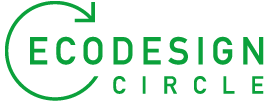
With the urge to develop tools and gather information to teach and inspire companies as well as faculties, SVID Swedish Industrial Foundation did a survey to find out what questions and needs that were most asked for. The survey result is the basis for a new Sustainability Guide. SVID will present this transnational hub of information, inspiration and methods for Ecodesign.
Local Initiatives
Presentations
2:30 PM – 3:15 PM
Venue: Werkstatt
Circular Berlin
presented by Dina Padalkina
The project »Circular Berlin« focuses on the acceleration of Berlin's transition to a circular city by developing a common circular vision and identifying an appropriate circular city strategy. It engages different stakeholders from Berlin to develop circular competences, share skills and knowledge on circularity, and to support of practical and scalable solutions.
CRCLR House
presented by Alice Grindhammer
The CRCLR House is located in the heart of Neukölln between Karl-Marx Strasse and Hermannstrasse. It is on the premises of what used to be the Kindl Brewery, and was formerly used as a storage space. Today it is Berlin’s ground zero for all things circular economy.
Moderated by Lars Zimmermann, Open Source Circular Economy Days Berlin
»Fashion and Textiles«
Panel Discussion
3:30 PM – 4:30 PM
Venue: Werkstatt
with:
- Reet Aus, Upmade
- Jonna Haeggblom, circular.fashion
- Thekla Wilkening, Kleiderei Hamburg GmbH
Moderated by Marte Hentschel, Sourcebook
EcoDesign Sprint: a strategic tool for circular business development
Presentation hosted by Design Forum Finland and Ethica
3:30 PM – 4:30 PM
Venue: Green Garage
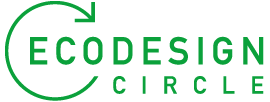
EcoDesign Sprint is an intensive 3-day training and acceleration program targeted at SMEs and design agencies. The Sprint gathers a multidisciplinary team of professionals consisting of designers, a circular economy coach and SME as a client company to focus on the SME’s business opportunities through circular thinking. For the SMEs, the Sprint is a concrete and rapid service/product development process furthering the company’s strategic goals. For the designers, the Sprint provides a great opportunity to learn and embed circular design principles into their own work.
The overall goal of the EcoDesign Sprint is to develop circular product/service concepts and explore novel business models through design methods. EcoDesign Sprint has been developed as part of the EcoDesign Circle project by Design Forum Finland.
Closing Keynote
4:45 PM – 5:15 PM
Venue: Werkstatt
Circular Systems Design
by Dr. Leyla Acaroglu, UnSchool of Disruptive Design / Disrupt Design
With the increase in understanding and excitement around the circular economy there is a strong need for accessible tools and approaches that fit the different types of creatives challenged to activate circular systems. Leyla outlines the systems thinking and circular design approaches that can help transform the creative communities to be Champions of circular change.
Sustainability provocateur and cultural protagonist Dr. Leyla Acaroglu challenges people to think differently about how the world works. As an award winning designer, UNEP Champion of the Earth, sociologist, and entrepreneur, she developed the Disruptive Design Method and designs cerebrally activating experiences, gamified toolkits, and unique educational experiences that help people make the status quo obsolete. Her mainstage TED talk on sustainability has been viewed over a million times, and she leads presentations around the world on activating positive social change through creative interventions and systems thinking.
Workshop #1: »Learning Factory Ecodesign«
implemented by Fraunhofer Institute IZM and Tapani Jokinen
10:00 AM – 1:00 PM
Venue: Water Showroom

The future of design is circular. Do you want to be part of it and become an ecodesign practitioner? The »Learning Factory Ecodesign« is a training open for professionals and teachers. It aims to convey methods and tools to enable participants to design products and services for a Circular Economy. You will develop a meaningful product or service for users, while minimizing its environmental footprint and developing a sustainable circular economy business model for it.
Fraunhofer Institute for Reliability and Microintegration IZM
As part of the Fraunhofer-Gesellschaft, Fraunhofer IZM specializes in applied and industrial contract research. Fraunhofer IZM’s focus is on packaging technology and the integration of multifunctional electronics into systems.
Tapani Jokinen is a Design Consultant, Strategic- & Ecodesign Contractor at Fraunhofer IZM and owner of TJ-Design, a creative consultancy that fuses strategic innovation and design with sustainability and ethical business to drive positive impact on a global level. Furthermore, he is Chief Design Officer at Circular Devices, the Finnish startup behind Sustainable Puzzlephone. Tapani is one of the authors of the »Learning Factory Ecodesign« program where he is teaching and facilitating training modules, innovation workshops and lecturing about Circular Design in seminars and conferences. The »Learning Factory Ecodesign« methods and principles are featured in the online web tool »Sustainability Guide«.
Workshop #2: »Can we prevent marine litter by better design?«
hosted by German Environment Agency
10:00 AM – 12:00 noon
Venue: Green Garage
It is estimated that globally 4.8 to 12.7 million tons of plastic enter the ocean annually. This marine litter has severe consequences for the marine environment, its organisms as well as humans. During this interactive workshop, we will shortly introduce the participants to the topic of marine litter with a focus on the Baltic Sea. In small groups, we will discuss, among others, the following questions:
How can product design contribute to prevent marine litter? How can products be designed in a way that, should they end up in the oceans, they cause as little damage as possible? What do designers, producers, service developers and engineers need to know in order to contribute in an adequate way to marine litter prevention? What are the opportunities and limitations of sustainable design with regard to marine litter? What are supportive systems? Which further framework conditions are needed so that ecodesigned services and products reach their objectives?
Participants are encouraged to bring in their experience, knowledge and ideas!
German Environment Agency
Founded in 1974, the German Environment Agency is Germany’s main environmental protection agency with its headquarters in Dessau. Around 1,500 employees concern with an extremely broad spectrum of issues, including waste avoidance, climate protection, and development of criteria for Blue Angel-labelled products. The agency’s work centres on gathering and analysing data concerning the state of the environment, and making projections. Based on these findings, federal bodies, such as the German Federal Ministry for the Environment, are provided with policy advice. Furthermore, the general public is provided with information and citizens’ questions are answered.
Workshop #3: »Circulab, the Circular Economy Business Game«
implemented by Phoebe Blackburn and Michel Wolfstirn
2:00 PM – 4:30 PM
Venue: Water Showroom
»Circulab« is a gamificated approach imagined and developed by the design agency Wiithaa in order to help organizations seize the economical, social and environmental opportunities of the Circular Economy. Whether you're a corporate, an SME, a non-profit, a local authority or government agency, a university or any other kind of organisation, you can benefit: by finding ideas of how to reduce your negative impacts, such as waste, and increase your positive impacts, such as new products and services and reducing resource costs. It can help map and re-evaluate your stakeholders, so as to become more sustainable and successful.
Prior to going freelance, Phoebe Blackburn worked for 8 years at French energy group EDF in London and Paris, in communications and CSR. She is a member of the Circulab Network, started in Paris in 2015, with 50 facilitators worldwide, whose goal is to promote the circular economy model using various tools. She also does editorial work and moderating and is a language coach for TEDx speakers and managers. Phoebe is a founding member of German co-operative sustainable natives.
Michel Wolfstirn is the co-founder of BiomimicryNorway, a non-profit focused on education related to nature inspired innovation. As a consultant he is also providing services related to sustainable innovation using the circular economy and biomimicry as frameworks for finding better solutions in design, engineering and business models. Michel is currently involved in two circular urban farming projects in Oslo. He is a certified Circulab consultant and he is an experienced workshop facilitator.
Workshop #4: »BEDA Ecodesign network Kickoff«
hosted by SVID Swedish Industrial Design Foundation
2:00 PM – 3:00 PM
Venue: Green Garage
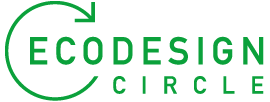
The newly formed BEDA (Bureau of European Design Associations) Ecodesign Cluster is a competence network focusing on ecodesign. It is a transnational network designed to bundle knowhow and competences in the field of ecodesign. During the »Circular Design Forum«, SVID Swedish Industrial Design Foundation will host a kickoff for the Ecodesign network. Everyone that has interest to be part of the network is welcome. Participants do not have to be a member of BEDA to join the network and do not commit themselves to be a future member by attending. The kickoff aims to meet and set agenda for upcoming activities and the opportunity to meet new contacts.
SVID, Swedish Industrial Design Foundation
The goal of the Swedish Industrial Design Foundation is to increase national awareness of design as a competitive tool and driver for sustainable development in all innovation and change processes. SVID aims to develop and deepen the understanding of design and design methodology in businesses, the public sector, research and society in general. The foundation operates cross-functionally where they can link actors, disseminate knowledge and strengthen the potential for design-driven development. To foster this development, SVID creates platforms and networks where growth and prosperity are developed and nourished.
Excursion #1: »Smart City of Tomorrow«
by INPOLIS UCE GmbH
12:00 noon – 1:00 PM
Meeting Point: EUREF Campus, Werkstatt, Registration Desk
The EUREF campus shows the idea of the Smart City of Tomorrow. The guide will demonstrate along various stations, that smart city is already possible today – with commercially available technology. The general tour gives an overview of the location and its development, a short presentation of the overall idea and will present various local institutions, companies and projects. On the tour the topics of »networked mobility«, »intelligent energy supply« and »energy-efficient construction« are in the focus. These topics presented by visible elements such as electric cars, charging stations or windmills on campus. Please note that the guide can only truncate the topics and that our guides do not work in this specific field, but will give a successful insight into the area and its development.
Excursion #2: »Company visits at EUREF Campus«
2:00 PM – 3:00 PM
Meeting Point: EUREF Campus, Werkstatt, Registration Desk
Selected companies from the fields of mobility, energy, clean technologies, research and innovation will open their doors and introduce participants in a short presentation to their work. The complete list with all participating companies will be announced soon.
Founded in 2011, ebee was created to develop smart, compact, and affordable electric vehicle charging solutions. We aim to supply cost-effective and easily-accessible public charging solutions that synergize with other city infrastructure. Today, our company is tightly intertwined with the future of city design and the automotive industry. To achieve this, we operate on standards that make our solutions available for everyone on the market and we offer a variety of products that can be configured to provide the greatest flexibility for the customer.
greenbox Global Holding GmbH builds and operates Smart City Labs at the heart of a tech community. We offer to connect relevant players with all the knowledge, skills and ideas of the most progressive minds in the scene to challenge and develop ideas and create tangible solutions for specific objectives – is it public transportation, waste & energy management or new ways of administration or agile operation management.
Since 2010 the Palmetto Group with its Business Units TGM, TGA and Smart Wins is your leading supplier in all aspects of water hygiene, sustainable and innovative products and services in the field of technical building equipment. With our more than 120 employees, we are available nationwide to our clients from the real estate industry, the public sector, industry and private households as a competent and reliable service provider.
»Circular Design Forum« was part of »Open Source Circular Economy Days Berlin 2018« and took place at EUREF Campus Berlin.
The environmental impact of a product is largely determined during the design phase. But how can sustainability strategies be implemented in products and services? The »Ecodesign Roadshow« aimed to promote Ecodesign as a holistic creative approach and to support the exchange of knowledge and experience between SMEs, designers, students as well as the public. A major component of the »Ecodesign Roadshow« was the travelling exhibition »Reconsider Design«. Accompanying workshops and events addressed topics like Ecodesign and Circular Economy.
The average five-year-old in Sweden owns more than 500 toys. At the same time, the industrialised nation of Sweden consumes the resources of approximately four Earths. Retoy wants to offer all children a sustainable relationship to consumption, while educating both them, their parents and other adult role models on children‘s rights. At toy swap events children exchange toys they no longer use, donate them to kids in need, or upcycle them in the Retoy Lab. Potentially harmful toys containing toxic chemicals are sorted out in the process. A total of 70,000 toys have already been exchanged since 2011, equal to 120 tons of CO2 saved from swapping instead of buying new toys.
TORP is a concept for reviving a monitoring station at the Puck Bay, the western portion of the Bay of Gdansk. Constructed as a torpedo station during World War II, the guard point has since been left to the sea. The project aims to carefully restore the historic station, and foresees the construction of office and residential spaces within the building. On the outside area, vegetables can be grown, provisions stored and rain water collected. The facility will run on renewable energy. Waste water will be collected separately and disposed of.
Every year, schools and public authorities dispose of vast quanti-ties of inventory, such as furniture, sports equipment and teaching materials. Often, these items are fully functional and useable, but the facilities lack storage and suitable networking possibilities. Here, the FLOW brokerage and auction platform can serve as an interface. Used inventory is listed for social organisations or is made available for auction.
UNO Parks are adventure parks and children playgrounds made of natural and reusable materials. Only leased tools as well as local, certified wood are used for the construction. If installed in nature, the construction area is cleaned from industrial and organic waste beforehand. UNO Parks are easy to repair and are made accord-ing to the client’s desires, landscape and brand. The company has already realised projects in China, Europe and the USA. Adventure Architects offer their customers and partners as well as students, refugees and the unemployed education programmes in the areas of Circular Economy and Ecodesign.
With the online game CO2-Kompass, Deutsche Bahn – one of the largest employers in Germany – is committing to raising awareness of the efficient use of resources among employees and company members. The playfully motivating approach of CO2-Kompass, in which users compete against each other, encourages partici-pants to save CO2 at home and in the office. Practical everyday tips, for example on the use of recycled paper or efficient heating, help to limit demand for CO2 and provide a gauge for activities.
The KOMPLOTT series of stickers appeals to everyone’s ecological awareness. The images counteract everyday ‘environmental sins’ in an unconventional and exhilarating way, thereby helping reduce energy and resource consumption. Originally designed for the University of Applied Sciences Potsdam, usage in other facilities like public offices, medical clinics, and schools is also conceivable.
Carbon Sink Design Studio
Lahti University of Applied Sciences, Tampere University of Applied Sciences
Wood draws the greenhouse gas carbon-dioxide (CO2) from the atmosphere. The Carbon Sink Design Studio research project promotes interdisciplinary work dealing with this phenomenon: students from the fields of design and engineering cooperate with companies to jointly develop innovative prototypes that replace fossil materials with sustainable alternatives. The project aims to create ecological materials, sustainable business models, and new forms of cooperation. The project is financed by the European Social Fund (ESF).
The disposable tableware Biotrem is completely biodegradable – through composting – in a mere thirty days. Wheat bran is a by-product, which forms during the milling of wheat grain. Biotrem’s pro-duction process uses only pure, edible wheat bran and a very small amount of water. No chemical additives are used, giving the table-ware no adverse human health effects and no negative environ-ment impact. About one ton of wheat bran can make up to 10,000 disposable plates or bowls. The Biotrem tableware can be used for hot and cold meals, and is also suitable for oven or microwave use.
Tuberous potatoes, carrots with three legs, oversized courgettes – vegetables and fruit that do not meet aesthetic standards for sale are often rejected and disposed of on a massive scale. The Culinary Misfits project intends to counteract this waste of food. Through a series of workshops, the people behind the project familiarise companies and private groups, children and adolescents with a food culture in which food can be appreciated once more. Culinary Misfits also offers a catering service. Vegetables and fruit are exclusively sourced from local organic farms.
The tableware Kaffeeform consists of coffee waste mixed with wood shavings and biopolymers. In cooperation with a Berlin based sheltered workshop, the coffee grounds are retrieved from local restaurants and cafes, and dried, packaged and sent out. The grounds are then processed at a production facility in Baden-Württemberg, where the waste is turned into a new product. The coffee-scented tableware is light, durable and easy to clean. Kaffeeform can be ordered online or purchased from selected cafes and businesses.
RePack is a circular packaging service for online retailers and shoppers: delivery packages can be conveniently returned, and then reused. RePack users return their packaging by folding it into letter size and dropping it into a postbox anywhere in the world, free of charge. Once returned, users get an automatic refund on their deposit as a voucher, which can be redeemed at any participating store. The shipping bags can be used up to twenty times. The circular packaging service reduces packaging waste by over 90 per cent and CO2 by 80 per cent. The project improves the web store user experience, increases sales and avoids trash.
soulbottles are refillable glass bottles with stoppers made from stainless steel, ceramic and natural rubber. By not using plastic, drinks remain free from pollutants and softening agents. The bottles are produced in Germany, under fair conditions and in a climate-neutral manner. The various designs on the bottles were created by designers from all over the world. The project also supports drinking water initiatives: for every bottle sold, one Euro goes to the Hamburg based organisation Viva con Agua St. Pauli.
Almost half a ton of household waste is generated per capita in Germany annually – not least as a result of food packaged in plastic. The Original Unverpackt supermarket offers an alternative to this problem: No disposable packaging is used, and the goods can be packaged at packing stations instead – from beans to liquids to grain. Along with the specific avoidance of waste, the project informs about topics like recycling and ‘zero waste’. Original Unverpackt also offers an online course, in which participants learn how to launch a package free supermarket on their own. There is currently a supermarket in Berlin as well as an online shop.
GIRIA is a homeware collection made from leaves and the bark dust of ash-, oak- and pine trees. The used materials give it a unique texture, varying in colour and roughness of the surface. The tableware is shaped by hand, oiled and dried over a span of weeks. Every item is one-of-a-kind and changes over time, depending on use. As a material study the project enhances natural waste by turning it into precious items.
The SollinEr yacht is powered by solar panels fitted on top of an automatically retractable roof. The boat can accelerate to 12 km/h. It runs silently and even on a cloudy day. When fully charged, it can cruise at night for 18 hours. Thanks to its aerodynamic hull, the water resistance is especially low. Light materials also reduce the weight of the yacht. The boating experience is thus improved and resource consumption is reduced.
The focal elements in the development of the Inspiro metro platform were energy efficiency and environmental acceptability – all the way from production up to daily operation, as well as almost complete recyclability. The weight of a six-train has been reduced by around 18 tonnes through lightweight construction and a weight-optimised chassis. Due to the pleasant interior design, passengers enjoy their travel time and use the metro more frequently.
StreetScooter has developed an electric mobility concept especially for Deutsche Post. The eco-friendly E-utility vehicle was developed with the requirements of the delivery of letters and parcels in mind, reducing the physical strain for the carrier. The lightweight construction keeps production costs low, while the modular system enables the production of different versions of the vehicle.
CoremanNet enables a circular economy with a smart IT solution and an international logistic network. One example for the circular economy approach is the remanufacturing of used parts within the automotive industry. Used parts are collected, identified, evaluated, and sorted before being returned to a defined destination for future processing. During the remanufacturing process, the components are dismantled, cleaned and replaced. The remanufactured parts, all of equal quality, are more affordable than new components and protect the environment by saving CO2, energy, and raw material.
The non-profit organisation Tevo namai is engaged in the re-socialisation of former prisoners. By offering training programs that focus on the former inmates’ skills, the organisation initiates new business opportunities. One of these training programs focuses in particular on the recycling and upcycling of used vehicles: the former convicts are recruited for car service companies, where they remove damaged car parts in order to repair and to refurbish them for reuse or sale. By doing so, the project facilitates the circulation of otherwise dismissed materials into the production chain, and enables the return of former prisoners into business and society. The foundation is also engaged in pollution control: together with a partner, the project produces and distributes biological probiotics that are used for the cleaning of sewage and polluted waters.
In 2015, close to 2.5 billion people lacked access to basic sanitation worldwide. Lack of sanitation is a major contributor to diseases like diarrhoea and cholera, killing over a million children every year. Peepoo is a personal, single-use toilet that sanitises human excreta shortly after use, thereby preventing faeces from contaminating the immediate environment as well as the surrounding ecosystem. Ergonomically designed and using the minimum amount of material necessary to provide maximum hygienic sanitation, Peepoo is cost-efficient to produce. Since Peepoo is affordable for those with the weakest purchasing power, it offers a sanitation choice that benefits both individuals and society as a whole.
Better Shelter is designed to help the millions of people worldwide who have fled armed conflicts, persecution or natural disasters. It is a temporary one room post-emergency shelter with semi-hard, opaque walls. Better Shelter has four windows, a lockable door and a high ceiling, enabling users to stand upright inside. Its modular design makes it adaptable for different uses and locations. The shelter can be anchored to the ground and will withstand rain, snow and strong winds. It can easily be dismantled, moved and reassembled. Components of the Better Shelter units can be replaced individually, the roof and wall panels are recyclable. A solar powered lamp provides light during the hours of darkness. The shelter is designed to provide residents with a higher level of safety, security and dignity than a tent.
SOLARKIOSK provides clean and affordable energy to regions that previously relied on costly, polluting energy. It operates as an independent energy source for the rural population in off-grid communities. Solar panels and batteries generate solar energy independently from the power grid. The kiosk can run for three days after only five hours of sunshine, either to charge mobile phones or to cool medication. SOLARKIOSK also offers an inclusive business model cooperating directly with local people and developing their community. The electrical components are manufactured in Germany, and local materials are used for the remaining parts. SOLARKIOSK can thus be assembled anywhere, thanks to its modular building structure designed by GRAFT.
RagBag facilitates complication-free donation of clothing. Folded inside-out, the shopping bag turns into a pre-stamped shipping bag. The clothing donation must only be placed into the shipping bag and put in the post. Consumers thus support aid organisations and extend the life cycle of the used clothing. The project was initiated by the sustainable fashion brand Uniforms for the Dedicated.
PuzzlePhone is a long-lasting smartphone with three easy-to-change modules: the critical electronics, the display and the battery. This makes the PuzzlePhone easy to upgrade, easy to customize, and easy to repair. In addition, the PuzzleLab provides companies and brands who wish to join the project with a ready-made standard: the PuzzlePhone Open Standard ensures that both firmware and hardware of accessories as well as upgrades are fully compatible and interchangeable. PuzzlePhone is currently under development. It is designed, engineered, manufacturedand assembled in Europe.
Can Circular Economy reconcile the paradox of fast fashion and sustainability? Sustainability and Other Stories is both a case study and fashion collection. The pieces in the collection were designed for circularity using different techniques to close the loop. The project aims to reinforce the political role of design and explore the link between consumption and social behaviour in a globalised world.
The functional clothing brand PYUA manufactures winter sports clothing from previously recycled or recyclable materials in the so-called Closed-Loop Recycling System. This system avoids resource waste and reduces CO2 emissions. The fluorocarbon-free fittings set a high standard: the polyester laminate Climaloop, which is developed specially for impregnation, is pollutant-free. The accompanying repair service contributes to prolonging the service life.
Pure Waste Textiles makes 100 per cent recycled yarns, fabrics, and ready-made garments. The raw material for the textiles is collected from two main sources – cutting clips from ‘cut, make and trim’–factories and yarn waste from spinning and weaving mills. Sorted by colour and quality, the textiles are mechanically opened back into fibres. Depending on the final use of the fabric, the cotton waste can then be mixed with chemically recycled polyester or viscose fibres and spun into yarns. Knitted or woven, the yarns undergo a finishing process and are cut into the final product. No harmful chemicals are used during the recycling process. Each Pure Waste T-shirt saves up to 2,700 litres of water in comparison to a T-shirt made of virgin materials. 90 per cent of the energy used for in the recycling process comes from renewable energy.
Kleiderei is a lending service for clothing. For a fixed amount, subscribers receive a monthly package with four pieces of clothing to their home. The clothing is customised to suit subscribers’ respective taste, to which end a questionnaire has to be filled out during registration. The products consist of (young) design brands, selected vintage pieces, and donated clothes. The project facilitates a diverse wardrobe and the sampling of new styles – avoiding fast fashion or excess. Clothing can also be loaned ‘offline’ at the Kleiderei store in Cologne.
Traditional clothing manufacturing creates an average of up to 18 per cent textile leftovers. Upmade closes the loop by applying upcycling on an industrial scale and reducing the amount of textile leftovers. With the help of the Upmade software, excess materials are turned into garments. Waste is therefore brought back into the consumption chain. Upmade reduces production costs and CO2 emissions, while saving energy and water. The project provides a profitable and scalable solution to the problem of textile leftovers for any size of a brand. Brands and manufacturers can obtain a certification.
The designer Reet Aus is dedicated to Slow Fashion. Her upcycled collection is made entirely from post-production leftovers. For her collections she uses the Upmade method, an industrial upcycling method that she has developed. The method involves a complete lifecycle analysis of the garments and enables the circulation of leftover materials back into the production chain. The ‘Reet Aus’ collection is therefore very efficient. For example, each Up-shirt saves on average 91 per cent water, 87 per cent energy and creates 80 per cent less CO2 in comparison to a conventionally produced T-shirt.
10.00 am–1.00 pm
IDZ Event
EcoDesign Circle: Online Train-the-Trainer Workshop EcoDesign Audit & Sprint
Two EcoDesign tools for transition from linear to circular business models are in the heart of our workshop. Audit and Sprint were developed jointly by our partners from EcoDesign Circle 4.0 project. The tools have already been tested and used in several workshops with companies from across the Baltic Sea Region.
The workshop, facilitated by Markus Vihma, Circular Business consultant from Tallinn, Estonia and Peter Post, expert and consultant for UX and service design from Wiesbaden is aimed equally at designers, SMEs and environmental experts. It is held in English.
The workshop is partly financed by the INTERREG Baltic Sea Region Program of the European Union.
If you are interested in an EcoDesign Sprint in your company or the planned "train-the-trainer" workshop for designers, please contact: ecodesign-circle@idz.de.
Downloadable Documents
Collection of relevant links (PDF)
Feedback questionnaire (PDF)
sold out
IDZ Event
Reconsider Design
at Science Park Borås, Schweden
Our exhibition »Reconsider Design« will be shown at Science Park Borås in Sweden starting October 10. The exhibition showcases 30 outstanding examples for ecological design from the Baltic Sea region – from awareness and research projects to material studies to products from areas such as fashion or mobility.
IDZ Event
Reconsider Design
at TTÜ Mektory Innovation and Business Centre in Tallinn, Estonia
Our exhibition »Reconsider Design« will be shown at TTÜ Mektory Innovation and Business Centre in Tallinn, Estonia starting August 27. The exhibition showcases 30 outstanding examples for ecological design from the Baltic Sea region – from awareness and research projects to material studies to products from areas such as fashion or mobility.
Opening: Mon, Aug 27, 5pm
IDZ Event
Circular Design Forum
at the EUREF Campus in Berlin
IDZ Event
Reconsider Design
at the EUREF-Campus in Berlin
As part of the »Circular Design Forum« we will present our exhibition »Reconsider Design« at the EUREF-Campus in Berlin. The exhibition showcases 30 outstanding examples for ecological design from the Baltic Sea region – from awareness and research projects to material studies to products from areas such as fashion or mobility.
IDZ Event
Reconsider Design
at the M. Žilinskas Art Gallery in Kaunas, Lithuania
Our exhibition »Reconsider Design« will be shown as part of the Design Week Lithuania from May 8 to 31 in Kaunas, Lithuania. The exhibition showcases 30 outstanding examples for ecological design from the Baltic Sea region – from awareness and research projects to material studies to products from areas such as fashion or mobility. Opening: Tue, May 8, 5pm.
IDZ Event
Ecodesign Roadshow
Workshop: Learning Factory for Ecodesign
On May 9, the workshop »Learning Factory for Ecodesign« takes place at the Vytautas Magnus University in Kaunas, Lithuania. As part of the »Ecodesign Roadshow«, the training is open for professionals and teachers. The workshop aims to convey methods and tools to enable participants to design products and services for a Circular Economy. The workshop will be held in English by Fraunhofer Institute for Reliability and Microintegration IZM.
Registration
Please register online before May 6. Admission free.
Venue
Vytautas Magnus University (412 room)
V. Putvinskio St. 23
Kaunas, Lithuania
IDZ Event
Reconsider Design
at the Science Center Pilke in Rovaniemi
Our exhibition »Reconsider Design« will be shown at the Pilke Science Center in Rovaniemi, Finland starting February 21. During the Arctic Design Week and the MISHMASH conference, the exhibition will serve as a »design check point«. The exhibition showcases 30 outstanding examples for ecological design from the Baltic Sea region – from awareness and research projects to material studies to products from areas such as fashion or mobility. More information on the Arctic Design Week and MISHMASH conference: arcticdesignweek.fi
1.00 pm–4.00 pm
Ecodesign Roadshow
Workshop: Ecodesign Sprint / Circular Design
Lecturer: Anne Raudaskoski (Ethica)
In the framework of Arctic Design Week 2018.
More information: arcticdesignweek.fi
IDZ Event
Reconsider Design
at the German Environment Agency in Dessau-Roßlau
Our exhibition »Reconsider Design« will be shown at the German Environment Agency (UBA) starting July 13. The exhibition showcases 30 outstanding examples for ecological design from the Baltic Sea region – from awareness and research projects to material studies to products from areas such as fashion or mobility.
For directions and opening hours please visit: umweltbundesamt.de
IDZ Event
Reconsider Design
Travelling exhibition | Sustainable design in the Baltic Sea Region
Our travelling exhibition »Reconsider Design« will open at Gdynia Design Days Festival in Poland on June 30 at 18h. The exhibition presents 30 sustainable design projects from Germany, Estonia, Finland, Lithuania, Poland and Sweden. Workshops and lectures will offer further insights into sustainable design practices.
6.00 pm–6.45 pm
Ecodesign Roadshow
Lecture: Wheat bran as the future of single-use objects
Lecturer: Artur Bednarz (Biotrem)
In the framework of Gdynia Design Days 2017. Free admission.
For more information please visit: gdyniadesigndays.eu
5.00 pm–5.45 pm
Ecodesign Roadshow
Lecture: Upcycling as an innovative trend in art, design and responsible business
Lecturer: Agata Frankiewicz (DEKO EKO)
In the framework of Gdynia Design Days 2017. Free admission.
Mehr Informationen unter: gdyniadesigndays.eu
4.00 pm–4.45 pm
Ecodesign Roadshow
Lecture: How to design recyclable packaging?
Lecturer: Marta Krawczyk (Rekopol)
In the framework of Gdynia Design Days 2017. Free admission.
For more information please visit: gdyniadesigndays.eu
7.00 pm–8.00 pm
Ecodesign Roadshow
Discussion: »EcoDesign Circle – Ecodesign as a Driver of Innovation in the Baltic Sea Region«
with: Artur Bednarz (Biotrem), Conrad Dorer (Umweltbundesamt), Agata Frankiewicz (DEKO EKO), Paulina Kisiel (Gdynia Design Centre), Mikołaj Żejmo (maradDesign)
In the framework of Gdynia Design Days 2017. Free admission.
For more information please visit: gdyniadesigndays.eu






